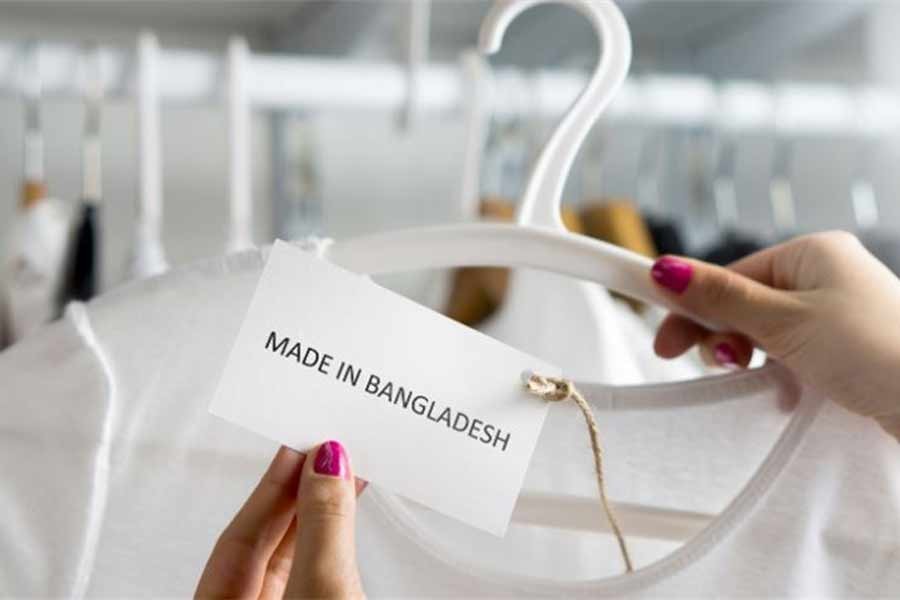The following article appeared on theparliamentmagazine.eu on October 27, 2020.
The COVID-19 pandemic has hit the world economy hard. In many countries, the second wave has arrived bringing new restrictions. While the European Union has agreed to a €750bn reconstruction fund for its Member States, including €390bn in grants, other countries have had to mobilise resources to the greatest extent possible for the recovery of their much smaller economies.
This is particularly true for governments in the developing world. With only limited or no access to the capital market, they are unable to borrow the money needed to set up large-scale, permanent rescue programs for their citizens. As a result, the lives of millions are impacted.
Bangladesh is one of these countries. However, it is more than just one of the "least developed countries". Bangladesh is most of all a success story of development. What we have observed in the country in less than 50 years is remarkable progress in both economic growths and in consolidating its democracy.
Thanks to the opening of trade between the EU and Bangladesh under the Everything But Arms trade scheme, Bangladesh has grown into one of the EU’s major business partners. Bangladesh's clothing industry has become its economic backbone, employing 4.5 million workers, and represents by far the number one industry in the country, accounting for 80 percent of exports.
That makes Bangladesh the second-largest individual country for apparel manufacturing in the world, behind only China, with a number of well-known Western brands producing much of their goods there.
The fact that the clothing industry makes up such a significant share of Bangladesh’s GDP also shapes international news about the country. That is why many in the EU still link Bangladesh’s garment industry with the exploitation of women and the devastating events of two garment factory disasters in 2012 and 2013. Wrongly so.
A lot has change in the past seven years. Trade unions have been established and workers have received securities in the form of a legal minimum wage as well as other benefits. Security in the working place has been significantly improved too, thanks to a system of binding rules for factory buildings as well as for inspections of fabrics.
Nonetheless, the Coronavirus pandemic has revealed that the dependence of a country on one industry can turn into a burden. With significantly lower demand, western multinational companies have started cancelling orders, some reportedly without paying for production costs already laid out.
Long-term business partners turned their back and the Bangladesh government intervened by providing a stimulus package of 5000 crore taka to ready-made garments (RMG) factories to ensure workers are paid. This support from the government allowed the RMG sector to keep their workers employed.
Yet, when the purchasers won’t change their attitude, thousands of workers are threatened with being sent home without pay, facing acute vulnerability.
Many multinational companies, including EU based ones, have shirked their responsibility of paying for orders by invoking the “force majeure” clause. They argue that, given the emergence of COVID-19, they are exempted from performing their contractual obligations.
This is of course an unacceptable excuse which not only gives a bad image of European business ethics but also puts whole supply chains at stake. Workers in Bangladesh have a right to be paid for the work they have done. Therefore, it is crucial that multinational companies adhere to contracts and pay for already produced goods.
The EU has shaped the future of Bangladesh by opening its markets. Now it is time to make sure that companies operating in these markets play by the rules. Even though many companies in the EU already do voluntarily disclose their activities linked to human rights and environmental risks, a comprehensive, coherent approach is missing.
The European Union needs proposals for guidelines and common rules to increase the accountability of companies and their actions, and to establish transparency for communities, consumers, investors, companies, and, in particular, to protect those who are most vulnerable: the workers. Therefore, let’s not abandon them, and let’s show our solidarity ensuring that they can rely on fair conditions.
Tomáš Zdechovský is a vice-chair of the European Parliament's Employment and Social Affairs Committee.


